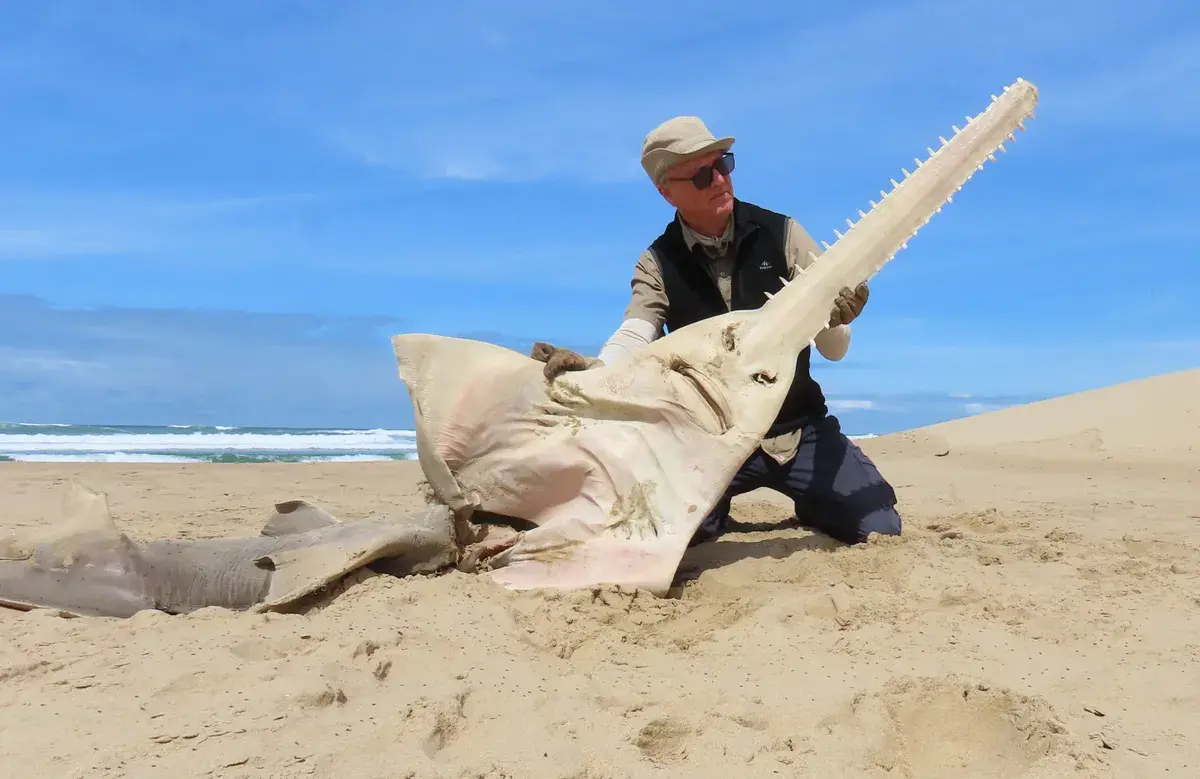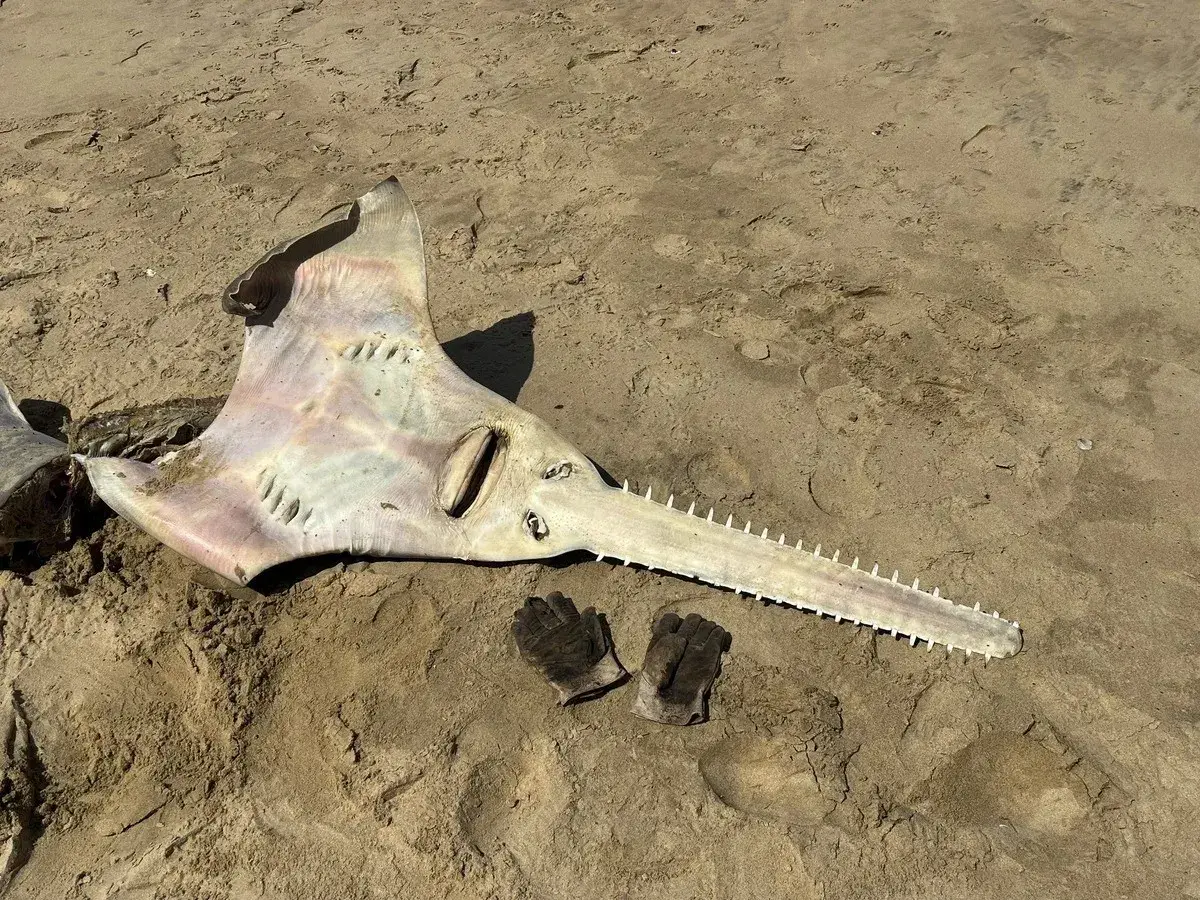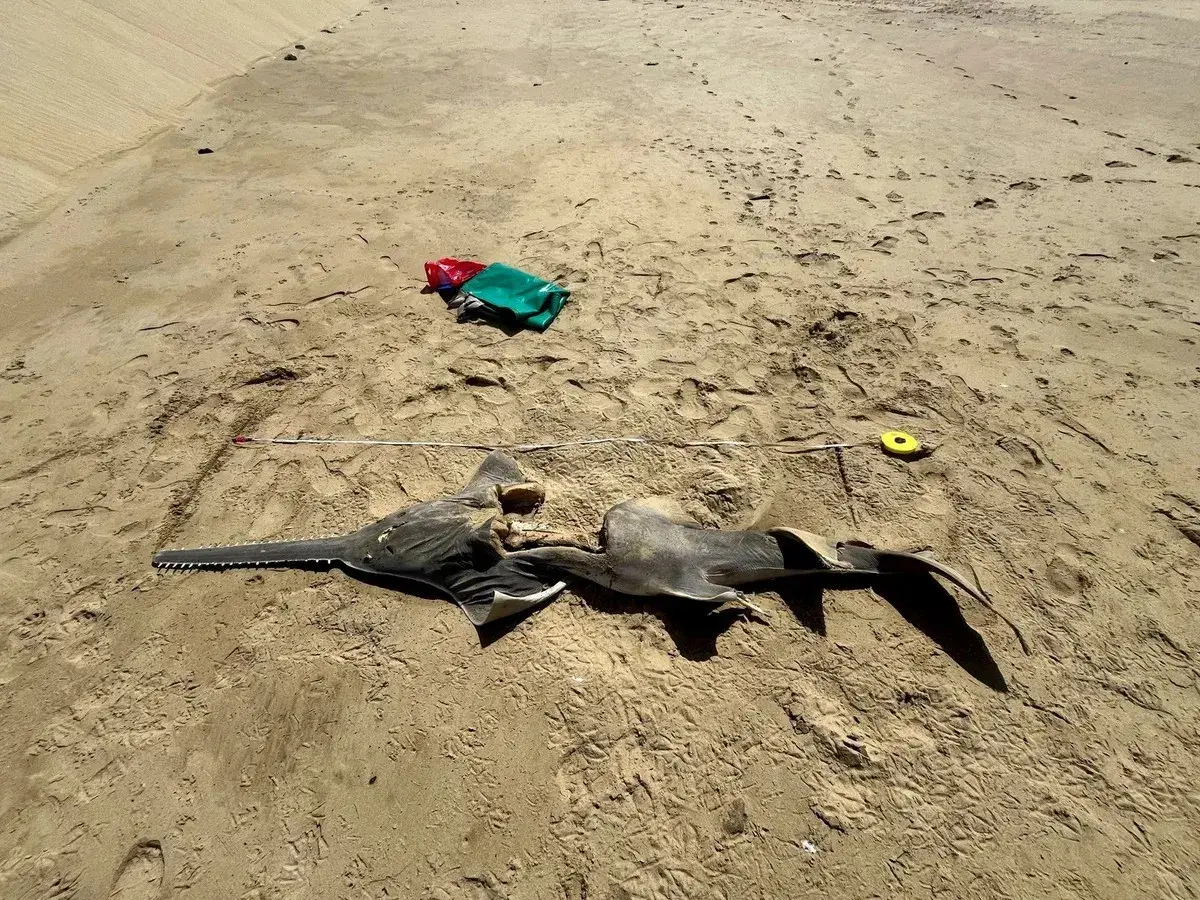 Experts speculate that the enormous fish likely died due to a predator attack. The sawfish, which resembles a guitar in shape, has not been spotted in this region since the 1990s. Locals believed this species was extinct. However, to the surprise of residents and scientists alike, a guitar-shaped fish recently washed ashore, dispelling the myth of its extinction.
Experts speculate that the enormous fish likely died due to a predator attack. The sawfish, which resembles a guitar in shape, has not been spotted in this region since the 1990s. Locals believed this species was extinct. However, to the surprise of residents and scientists alike, a guitar-shaped fish recently washed ashore, dispelling the myth of its extinction.
The body of the sawfish, measuring 2.93 meters long, was discovered at the mouth of the Birha River in South Africa’s Eastern Cape Province by local resident Mike Vincent. He stumbled upon this remarkable specimen and sent a photo of his find to Kevin Cole, a British naturalist at the East London Museum.
“It was surreal to see this shark-like ray with a long, saw-like snout. I just sat next to it for a while, pondering what was happening,” Cole told IFLScience.

About the Discovery
Scientists joke that the sawfish is something between a fish and a chainsaw. While its body resembles that of a shark, it technically belongs to the ray family.
It’s hard to miss its distinctive feature: a long, flat snout lined with sharp teeth. The fish uses this “tool” to hunt and dig into the ocean floor.
It’s unclear how the sawfish died, but it may have been attacked by a predator. Alternatively, it could have been scavenged after its death.
“Judging by the wound, it was probably a predator. No land creature could have eviscerated this fish like that. Some researchers believe an orca might have been involved. Unfortunately, no DNA samples were taken from the carcass, so researchers will have to rely solely on photographs,” Cole noted.

Various species of sawfish have historically inhabited many tropical and subtropical waters around the world, sometimes moving from salty coastal waters to freshwater lakes.
As these fish are globally endangered, many feared the worst. However, following this recent discovery, Cole received several reports of a similar fish found nearby—on Kaiser Beach. This suggests that there may be more of this species than previously thought.
“Amateur fishermen and beachgoers will now be more vigilant for potential wash-ups of such fish, helping to revive research on this species,” Cole said.
